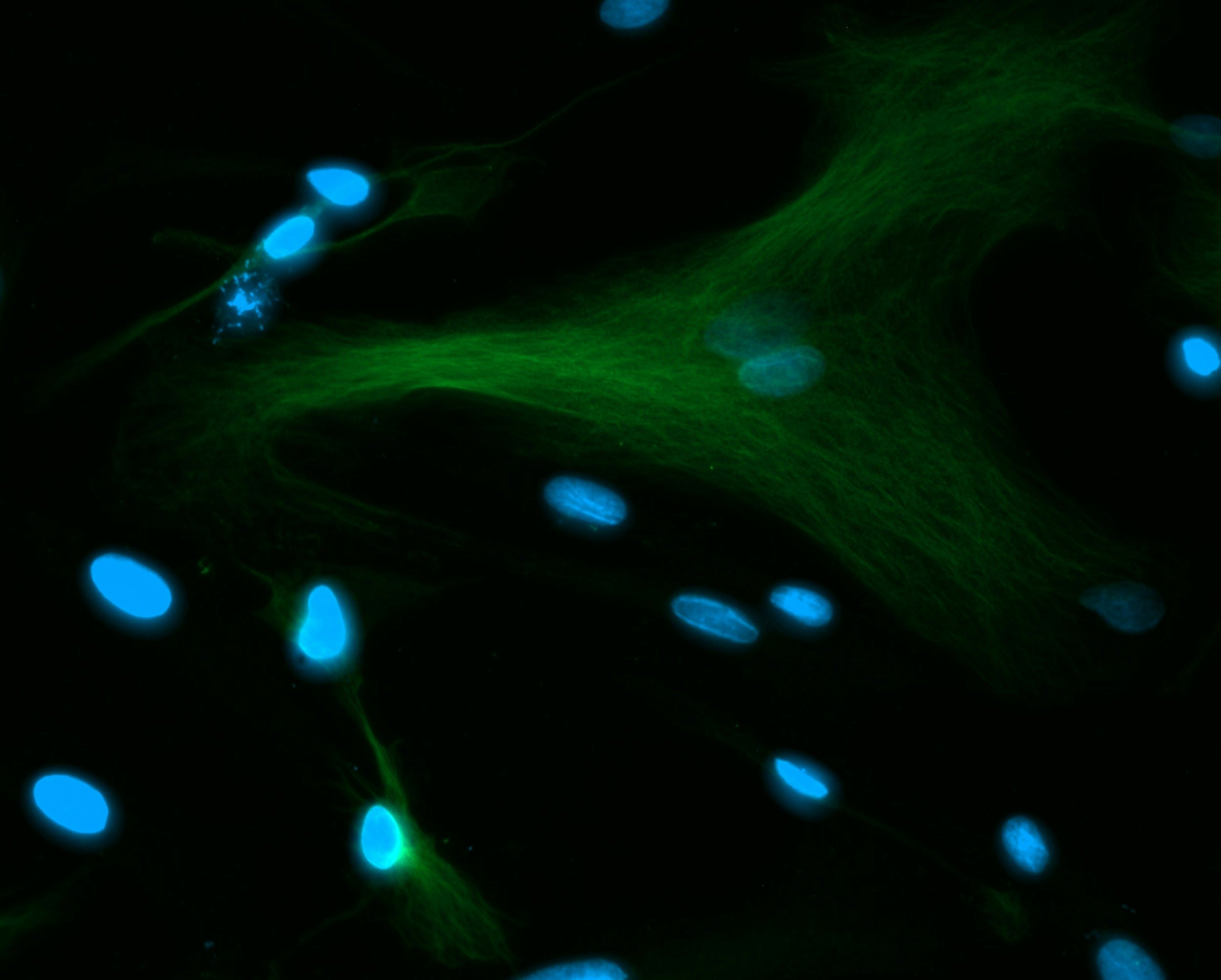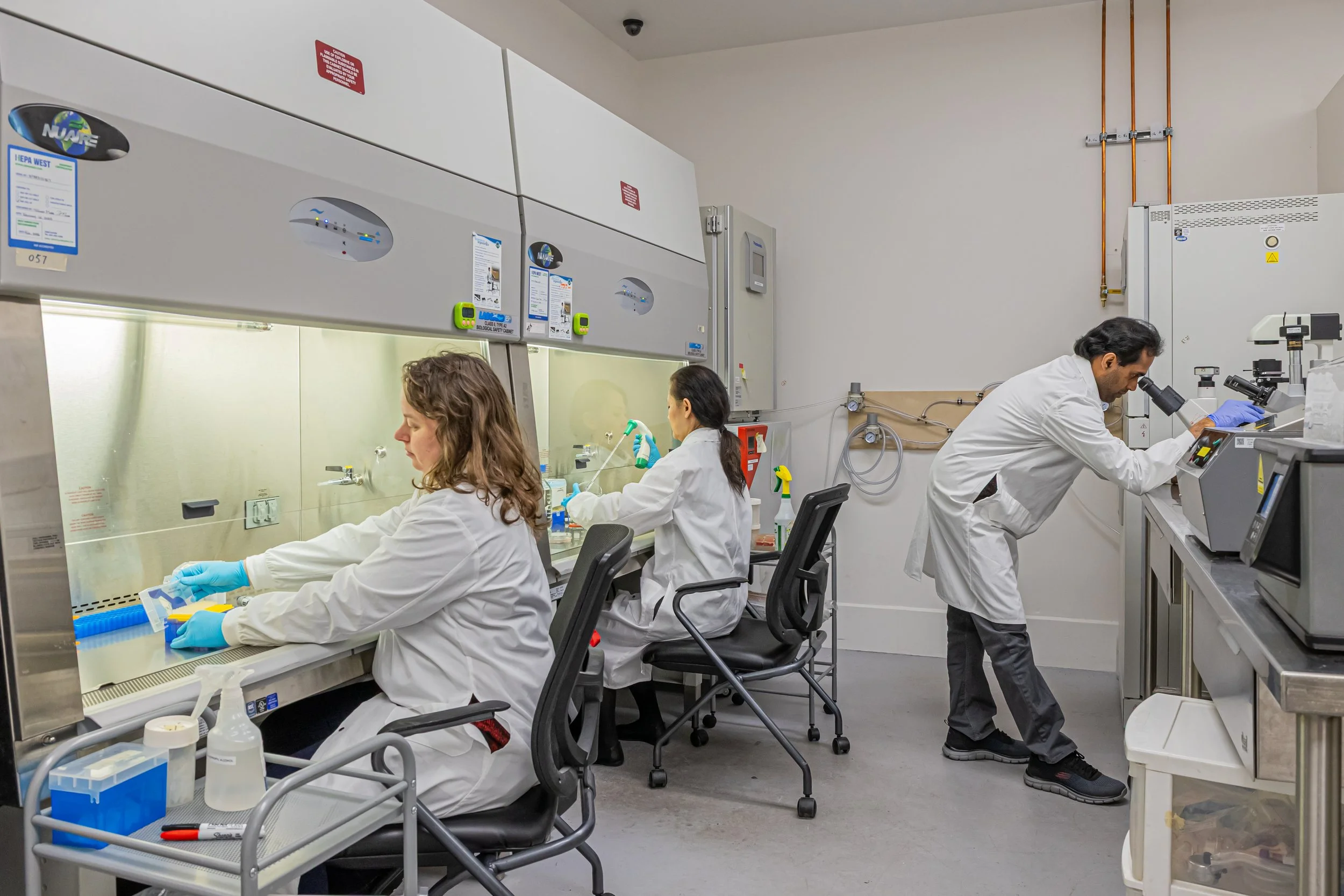Research Model Services
At TME Scientific, we provide comprehensive research model solutions to accelerate discovery and development across biomedical fields. From toxicology assays to 3D organoids and engineered cell lines, our services are designed to be flexible, timely, reliable, and fully customizable.
Our team combines deep scientific expertise with high-quality execution, empowering your research and supporting breakthroughs in disease understanding, drug development, and precision medicine. Each project is supported by a dedicated project manager and scientists who work closely with you to ensure scientific accuracy, timely communication, and tailored solutions that meet your research goals.

In Vitro
Organoid Models
Organoid Type: PDX-Derived
Drug response profiling; tumor biology studies; personalized therapy development; respiratory oncology research.
Organoid Type: iPSC-Derived - Coming Soon!
Modeling lung development and respiratory diseases (e.g., asthma, fibrosis); toxicity testing; regenerative medicine; viral infection studies (e.g., influenza, COVID-19).
Organoid Type: PDX-Derived
Study of pancreatic cancer progression; therapeutic resistance; targeted therapy screening.
Organoid Type: iPSC-Derived - Coming Soon!
Differentiation into insulin-producing beta cells; diabetes modeling; drug screening for pancreatic diseases; endocrine pancreas development studies.
Organoid Type: PDX-Derived
Modeling colorectal cancers; biomarker discovery; immune-oncology and microbiome interaction studies.
Organoid Type: iPSC-Derived - Coming Soon!
Modeling intestinal epithelium; inflammatory bowel disease (IBD) research; drug absorption and metabolism; microbiome-host interaction studies.
Organoid Type: PDX-Derived
Research on upper GI malignancies; testing chemotherapeutics and targeted agents.
Organoid Type: iPSC-Derived - Coming Soon!
Modeling gastric and esophageal lining; studies of acid injury, ulcers, and gastric cancer; evaluation of GI-targeted therapies.
Organoid Type: PDX-Derived
Gynecologic oncology studies; therapy resistance; biomarker validation.
Organoid Type: iPSC-Derived - Coming Soon!
Reproductive development research; modeling oocyte maturation and ovarian function; female fertility and hormone regulation studies.
Organoid Type: PDX-Derived
Subtype-specific breast cancer research; combination therapy evaluation; personalized medicine.
Organoid Type: iPSC-Derived - Coming Soon!
Modeling mammary gland development; hormone response studies; breast cancer risk and subtype-specific differentiation research.
Organoid Type: PDX-Derived
Endometrial cancer modeling; hormone-driven cancer research; therapeutic development.
Organoid Type: iPSC-Derived - Coming Soon!
Endometrial tissue modeling; studies on hormonal regulation, implantation, and uterine disorders; regenerative approaches in reproductive health.
Organoid Type: PDX-Derived
Research on cholangiocarcinoma; drug metabolism; hepatobiliary cancer modeling.
Organoid Type: iPSC-Derived - Coming Soon!
Differentiation into cholangiocyte-like cells; modeling biliary diseases (e.g., cholestasis); drug metabolism and bile duct toxicity screening.
Organoid Type: PDX-Derived
Hepatocellular carcinoma modeling; liver toxicity screening; metabolism and pharmacokinetics studies.
Organoid Type: iPSC-Derived - Coming Soon!
Hepatocyte differentiation for liver disease modeling (e.g., NAFLD, hepatitis); drug metabolism; hepatotoxicity screening; regenerative liver therapy research.
Organoid Type: PDX-Derived
Cardiotoxicity testing; modeling of congenital and acquired heart diseases; drug safety pharmacology.
Organoid Type: iPSC-Derived - Coming Soon!
Cardiomyocyte differentiation; modeling cardiac diseases (e.g., cardiomyopathies, arrhythmias); drug-induced cardiotoxicity screening; regenerative cardiology research.
Organoid Type: PDX-Derived
Neurological disease modeling (e.g., glioblastoma, neurodegeneration); neurotoxicity screening; CNS drug discovery.
Organoid Type: iPSC-Derived - Coming Soon!
Generation of neurons, astrocytes, and microglia; modeling neurological and neurodegenerative diseases (e.g., Alzheimer’s, Parkinson’s); neurotoxicity and CNS drug testing.
Organoid Type: PDX-Derived
Renal toxicity testing; modeling of kidney diseases; nephrotoxicity and drug clearance research.
Organoid Type: iPSC-Derived - Coming Soon!
Differentiation into renal tubule cells; modeling kidney development and diseases (e.g., polycystic kidney disease); nephrotoxicity and drug clearance studies.
Organoid Type: PDX-Derived
We offer custom organoid models developed from either tumor-derived tissues or iPSC-derived cells, tailored to your specific disease, mutation, or tissue of interest. Designed in collaboration with your team, these models capture relevant biological features for translational research.
Organoid Type: iPSC-Derived - Coming Soon!
Personalized drug testing, rare disease modelling, tumor heterogeneity studies, and customized assay development.
Our organoid platform supports drug screening, disease modelling, toxicity testing, and functional genomics in physiologically relevant 3D cultures. Derived from patient or tissue-specific sources, these models mimic native tissue structure and function, making them ideal for personalized medicine, mechanistic studies, and high-content analysis.
Our Organoid-Based Services Include:
Custom organoid generation
Drug efficacy and dose–response testing
CRISPR/Cas9 editing and pathway interrogation
Predictive toxicology and efficacy modeling
Transcriptomic and proteomic profiling
Model screening and mechanism-of-action studies
Biomarker analysis

Want to run the research yourself?
We also offer ready-to-use organoids for purchase.
Description
Stable cell lines are genetically engineered to continuously express a gene of interest over multiple passages, providing long-term expression without the need for repeated transfection. This ensures consistent performance across experiments and supports reproducible research.
We also offer inducible stable cell lines that enable precise, tunable control over gene expression, featuring minimal basal expression and robust activation for reliable and flexible performance.
Research Application
Drug discovery; functional genomics; protein production; long-term gene expression studies; drug screening; target validation; consistent assay platforms for reproducibility.
Learn More
Description
Tagged cell lines are engineered to express proteins fused with detectable markers such as fluorescent tags or epitope tags. These models enable precise visualization, tracking, and isolation of proteins in live or fixed cells.
Research Application
Protein localization and trafficking studies; live-cell imaging; real-time monitoring of gene/protein expression; interaction mapping (e.g., co-IP, FRET)
Description
Inducible cell lines are designed with regulatory systems that allow gene expression to be turned on or off in response to specific stimuli (e.g., doxycycline). This enables precise temporal control over gene function in experimental settings.
Research Application
Controlled gene expression studies; functional validation with temporal regulation; toxicity testing; pathway activation/inhibition modeling.
Description
Knock-out cell lines are engineered to permanently or conditionally disrupt specific genes, eliminating their expression. These models are essential for investigating gene function and modeling genetic disorders at the cellular level.
Research Application
Generation of gene knockout models (e.g., constitutive or inducible) for functional loss-of-function studies and mechanistic disease research.
Description
Knock-in cell lines are genetically modified to insert specific sequences—such as reporter genes, tags, or regulatory elements—at targeted genomic loci. This allows precise control and tracking of gene expression and protein function.
Research Application
Introduction of reporter genes, epitope tags, or regulatory sequences (e.g., LoxP, FRT, tetO) for gene tracking, expression analysis, and gene regulation studies. Ideal for investigating gene function, signaling pathways, and targeted therapeutic development.
Description
Primary cell line models are developed from freshly isolated human or animal tissues and cultured for short-term use without genetic modification. These cells preserve the native phenotype, genotype, and functionality of the source tissue, offering biologically relevant platforms for research.
Research Application
Physiologically relevant disease modeling; immunological assays; personalized medicine research; toxicity and efficacy testing in near-native systems.
Description
Customized cell lines are engineered based on client specifications to model specific genes, mutations, pathways, or phenotypes. These tailored models enable targeted investigation of complex biological questions with high experimental relevance.
Research Application
Tailored models for specific mutations, targets, or pathways; patient-specific disease modeling; advanced screening platforms for precision medicine development.
Cell Line Models
We offer a full suite of cell line engineering services. Customers provide the source cells, and we generate models that are stable, tagged, inducible, primary, or fully customized to meet specific research needs. These cell lines are ideal for functional assays, drug screening, protein tracking, and target validation.

